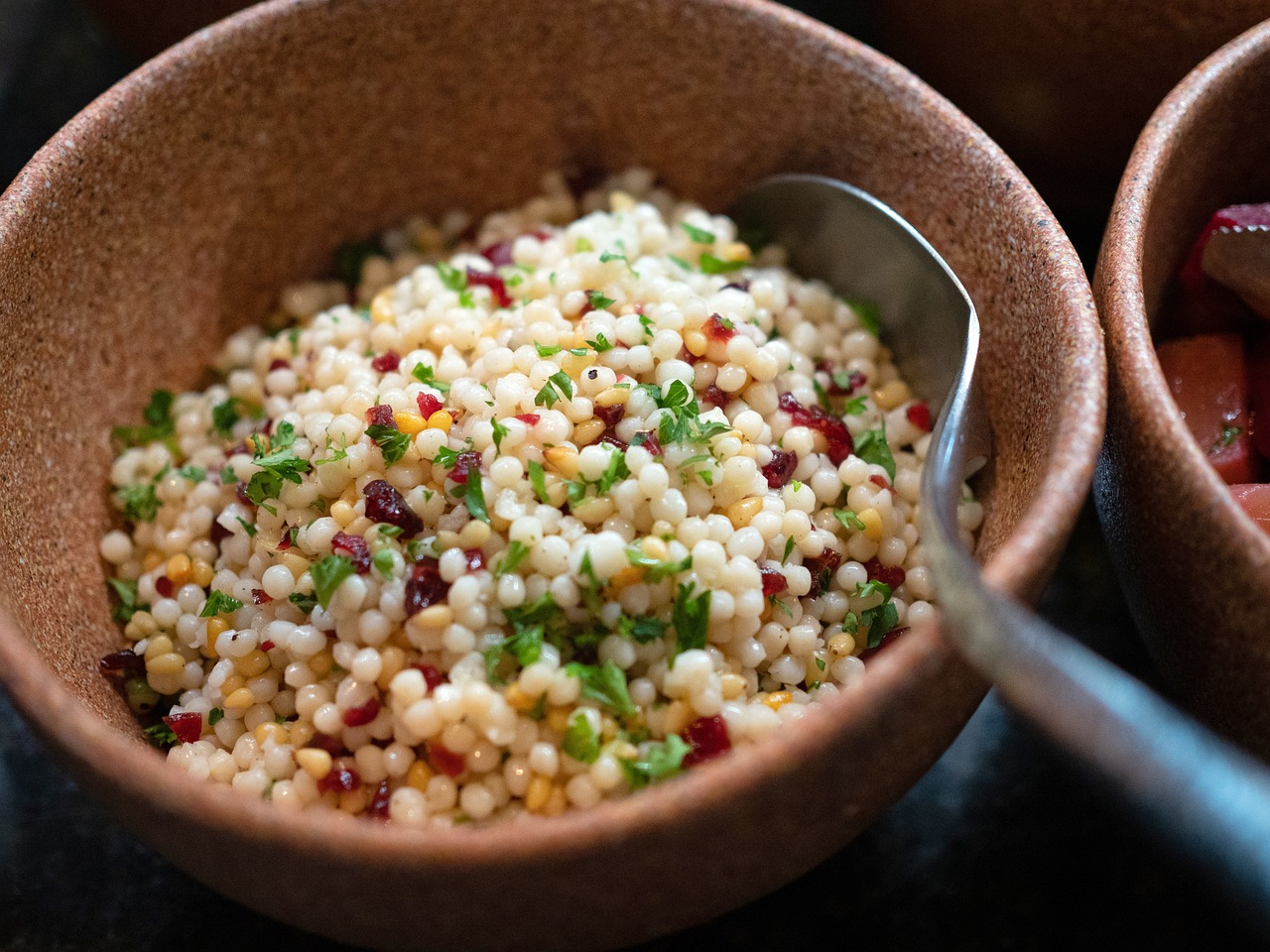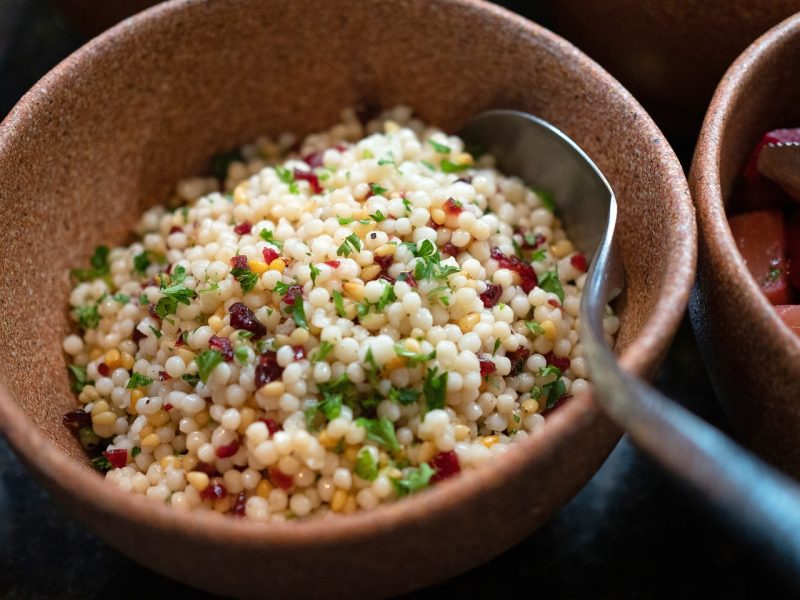Substitutes For Couscous

As a food lover and avid cook, I always look for new and interesting ingredients to use in my recipes. One of my go-to ingredients has always been couscous. It’s quick to cook, versatile and has a delicious nutty flavor. However, there are times when I need to find a substitute for couscous, either because I can’t find it in the store, or I want to try something different. In this article, I’ll share 10 couscous substitutes that will change your meal game!
Introduction To Couscous And Why It’s A Popular Ingredient
Couscous is a staple food in many North African and Middle Eastern cuisines, but it may not be suitable for everyone. Some people may have gluten intolerance or celiac disease, which makes couscous off-limits. Others may simply want to try something different or add more variety to their diet. Whatever the reason, there are plenty of alternatives to couscous that are equally delicious and nutritious. Here are 10 substitutes for couscous that you can use in your recipes.
Why You might Need A Couscous Substitute
There are several reasons why you might need a couscous substitute. Perhaps you can’t find it in your local grocery store, or maybe you’re looking to try something new. You might also be on a gluten-free diet, in which case couscous isn’t an option. Whatever the reason, there are plenty of couscous substitutes that will work just as well in your recipes.
Factors To Consider When Choosing a Substitute For Couscous
When choosing a couscous substitute, there are a few factors to consider. Firstly, you’ll want to think about the texture of the substitute. Couscous has a light, fluffy texture, so you’ll want to choose a substitute that has a similar texture. You’ll also want to consider the flavor. Couscous has a nutty, slightly sweet flavor, so you’ll want to choose a substitute that has a similar taste. Finally, you’ll want to consider the cooking time. Couscous cooks quickly, so you’ll want to choose a substitute that cooks in a similar amount of time.
10 Couscous Substitutes To try
Quinoa
Quinoa is a gluten-free grain that has a similar texture to couscous. It’s also high in protein, making it a great option for vegetarians and vegans. Quinoa has a mild, nutty flavor that pairs well with a variety of ingredients. To use quinoa as a couscous substitute, simply cook it according to the package instructions and use it in your recipe in place of couscous.
Rice
Rice is a staple in many cuisines and makes a great substitute for couscous. It has a similar texture and is available in a variety of different types, including white, brown, and wild rice. Rice also has a neutral flavor, which means it can be used in a variety of different dishes. To use rice as a couscous substitute, cook it according to the package instructions and use it in your recipe in place of couscous.
Cauliflower Rice
Cauliflower rice is a low-carb and low-calorie alternative to couscous that is made from grated or processed cauliflower florets. Cauliflower rice has a similar texture and color to couscous but has a mild vegetable flavor. It is also rich in vitamin C, folate,
potassium, and fiber. Cauliflower rice can be eaten raw or cooked in various ways. You can microwave it for 3 to 4 minutes in a covered bowl with some water; sauté it in a skillet with some oil for 5 to 10 minutes; or roast it in the oven with some oil and seasonings for 15 to 20 minutes.
Bulgur
Bulgur is a cereal made from cracked wheat that has a similar texture to couscous. It’s commonly used in Middle Eastern cuisine and has a nutty, slightly sweet flavor. Bulgur is also high in fiber and protein, making it a healthy option. To use bulgur as a couscous substitute, cook it according to the package instructions and use it in your recipe in place of couscous.
Orzo
Orzo is a type of pasta that has a similar texture to couscous. It’s commonly used in Italian cuisine and has a mild, slightly nutty flavor. Orzo is also versatile and can be used in a variety of different dishes, from soups to salads. To use orzo as a couscous substitute, cook it according to the package instructions and use it in your recipe in place of couscous.
Millet
Millet is a gluten-free seed that originates from Africa and Asia. It has a mild flavor and a fluffy texture when cooked. Millet is also a good source of protein, fiber, magnesium, phosphorus, and manganese. Millet can be used as a substitute for couscous in salads, soups, stews, or casseroles. To cook millet, toast it in a dry skillet over medium-high heat for a few minutes until golden and fragrant. Then transfer it to a pot and add two parts water or broth for every one part millet. Bring to a boil and then lower the heat and simmer for 20 to 25 minutes.
Farro
Farro is an ancient grain that has a similar texture to couscous. It’s commonly used in Italian cuisine and has a nutty, slightly sweet flavor. Farro is also high in fiber and protein, making it a healthy option. To use farro as a couscous substitute, cook it according to the package instructions and use it in your recipe in place of couscous.
Barley
Barley is a cereal grain that has a slightly chewy texture, making it a great substitute for couscous. It has a mild, slightly nutty flavor and is often used in soups and stews. Barley is also high in fiber, making it a healthy option. To use barley as a couscous substitute, cook it according to the package instructions and use it in your recipe in place of couscous.
Cornmeal
Cornmeal is a coarse flour made from ground corn that can be used as a substitute for couscous in some recipes. It has a slightly gritty texture and a mild, slightly sweet flavor. Cornmeal is commonly used in Southern cuisine and can be used in a variety of dishes, from polenta to cornbread. To use cornmeal as a couscous substitute, cook it according to the package instructions and use it in your recipe in place of couscous.
Polenta
Polenta is a type of cornmeal that has a smooth, creamy texture when cooked. It has a mild, slightly sweet flavor and is commonly used in Italian cuisine. Polenta can be used as a substitute for couscous in some recipes, particularly in dishes that require a creamy texture. To use polenta as a couscous substitute, cook it according to the package instructions and use it in your recipe in place of couscous.
Gluten Free Substitute For Couscous
If you’re on a gluten-free diet, there are several couscous substitutes that you can use. Quinoa, rice, and cornmeal are all gluten-free options that have a similar texture to couscous. You can also try using gluten-free pasta or gluten-free couscous, which are made from alternative flours such as rice flour or corn flour.
Conclusion
Couscous is a versatile ingredient that can be used in a variety of dishes, but there are plenty of substitutes available if you can’t find it or want to try something different. When choosing a couscous substitute, consider the texture, flavor, and cooking time. Quinoa, rice, bulgur, orzo, farro, barley, cornmeal, and polenta are all great options to try. If you’re on a gluten-free diet, there are plenty of alternatives available. So get creative in the kitchen and try some of these couscous substitutes – you might just discover a new favorite ingredient!
